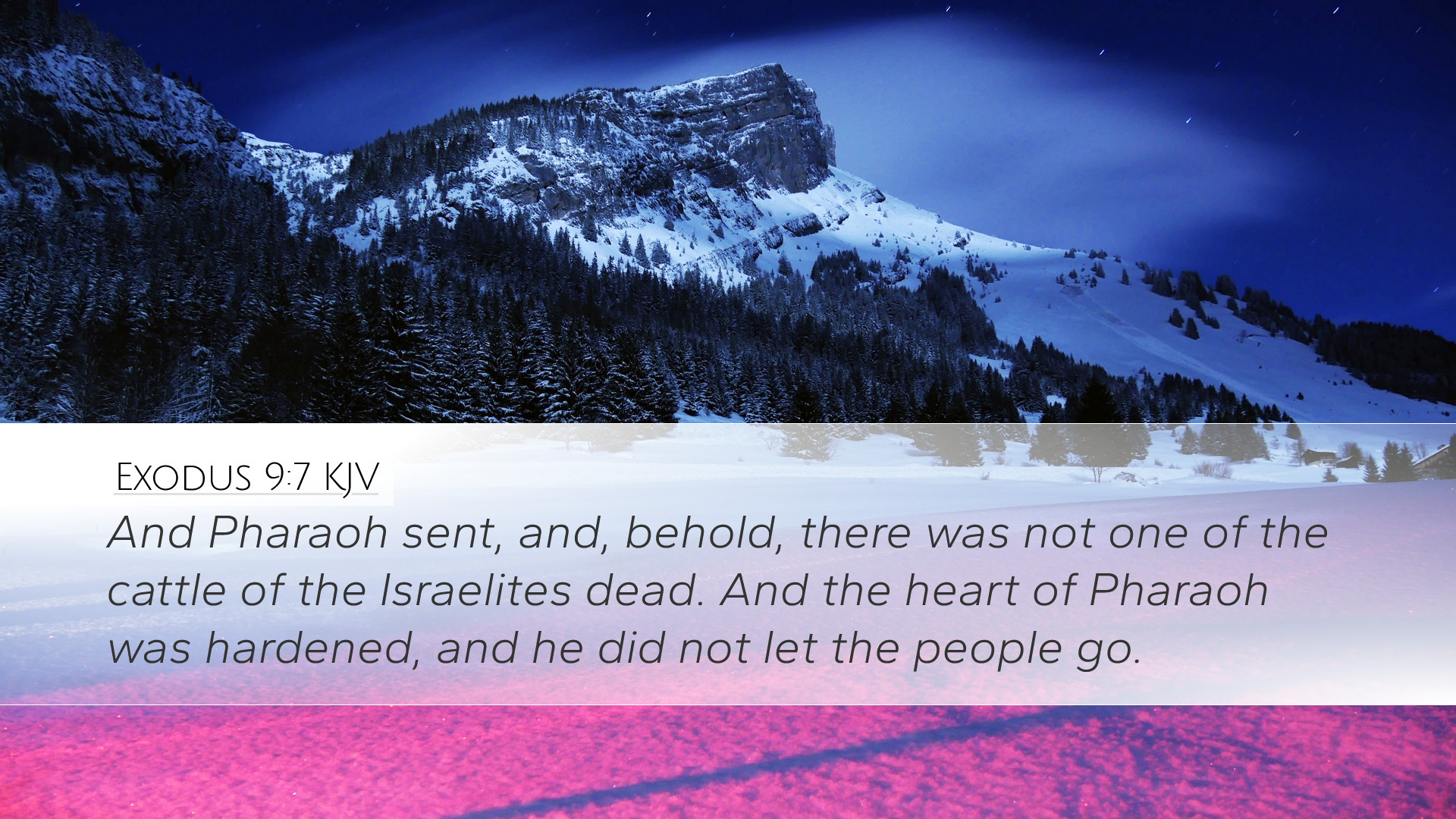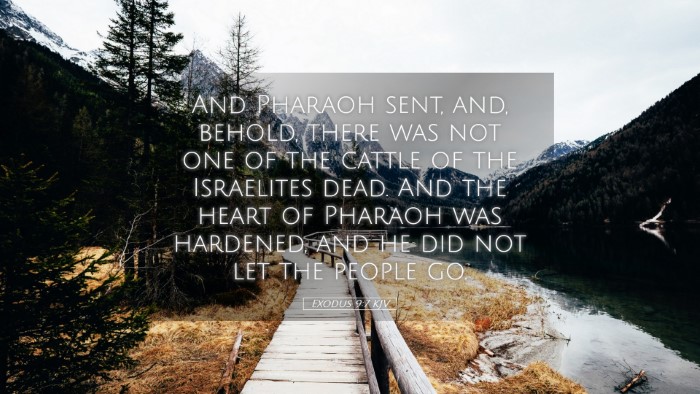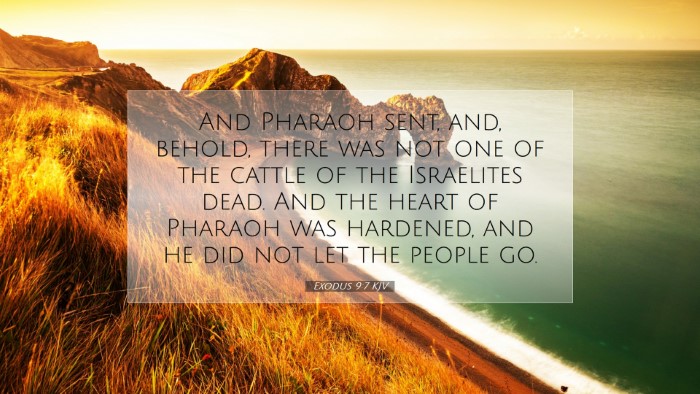Commentary on Exodus 9:7
Text of Exodus 9:7 (KJV): "And Pharaoh sent, and behold, there was not one of the cattle of the Israelites dead. And the heart of Pharaoh was hardened, and he did not let the people go."
Introduction
This verse emphasizes the ongoing struggle between Pharaoh and God, showcasing the hardening of Pharaoh's heart despite the evidence of God's power. As we delve into this commentary, we will glean insights from renowned public domain commentaries by Matthew Henry, Albert Barnes, and Adam Clarke. Each commentator offers a unique perspective on the spiritual, historical, and theological implications of this event.
The Context of the Plagues
In the broader narrative of the Exodus, this verse is pivotal, situated within the series of judgments that God executes upon Egypt. The purpose of these plagues is to demonstrate God's sovereignty and to persuade Pharaoh to release the Israelites from bondage.
Matthew Henry's Insight
Matthew Henry highlights that each plague serves not only as a punishment for Egypt's oppression of the Israelites but also as a clear sign of God's supremacy. He notes that the miraculous preservation of the Israelites' cattle amidst the death of Egypt's livestock was an undeniable manifestation of God's favor towards His people.
- Divine Protection: Henry emphasizes that this protection serves as a reminder of God’s covenant with Israel, illustrating that despite suffering and hardship, believers can trust in God's provision.
- The Hardening of Pharaoh's Heart: Henry points out that Pharaoh’s hardened heart is a central theme in the Exodus account, pointing to a deliberate rejection of God's authority.
Albert Barnes' Perspective
Albert Barnes focuses on the implications of Pharaoh's response to the plague. He discusses how the plague was intended to provoke a change in Pharaoh but instead reinforced his obstinacy. Barnes illustrates this point by stating that Pharaoh's heart being hardened is a metaphor for resisting divine revelation and truth.
- Spiritual Hardening: Barnes warns against the danger of spiritual hardening in our lives, drawing parallels to modern believers who may become indifferent to God's calls for change.
- God’s Sovereignty: He also emphasizes God’s sovereignty in orchestrating events to bring about His ultimate purpose—Pharaoh's eventual downfall serves to elevate God's glory.
Adam Clarke's Analysis
Adam Clarke provides a detailed theological and historical analysis of this event. Clarke suggests that this incident highlights God’s power in distinguishing between His people and the Egyptians. He interprets Pharaoh's hardened heart as a pivotal demonstration of human resistance to divine authority.
- The Role of Signs: Clarke notes that the plagues signify God's authority and lent weight to Moses' words, acting as divine signs meant to instill reverence for God.
- Human Agency vs. Divine Will: He engages with the concept of free will, positing that while God used Pharaoh's hardness of heart for His purpose, it also reflects Pharaoh's moral responsibility in rejecting God's commands.
Theological Implications
The hardening of Pharaoh's heart raises significant theological questions regarding divine sovereignty and human free will. The tension between these concepts is at the forefront of many theological discussions.
- The Nature of God’s Sovereignty: The commentary underscores that God's sovereignty is exalted as He orchestrates events to fulfill His promises, even through human disobedience.
- The Warning Against Hardness: Modern readers are cautioned against the dangers of allowing the heart to harden through repeated resistance to God’s promptings.
Application for Today
This verse and its broader context serve as a reminder of the call to respond to God’s authority and revelation. For pastors, students, and theologians, it presents profound implications for understanding God’s nature and our response to His call.
- Encouragement for Believers: The assurance of God’s protection is a source of comfort; just as He separated the Israelites from the Egyptians, He continues to uphold His people today.
- Call for Reflection: A careful self-examination of our hearts is essential; are there areas in our lives where we are resisting God’s leading?
Conclusion
Exodus 9:7 captures a significant moment in the Exodus narrative, illustrating the confrontation between divine authority and human obstinacy. Through insights from Matthew Henry, Albert Barnes, and Adam Clarke, we gain a multifaceted understanding of this encounter that speaks to God's sovereignty, our responsibility, and the profound nature of faith. As believers, we are called to heed this warning against hardening our hearts and to trust in the God who protects and redeems.


